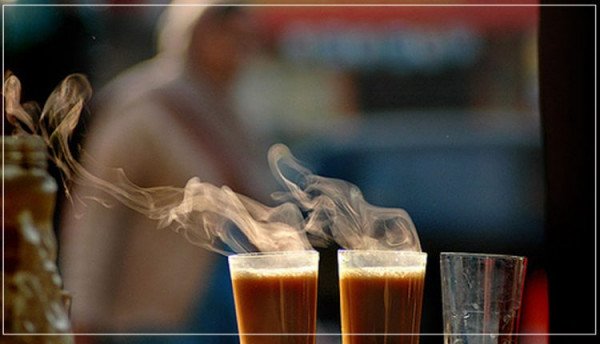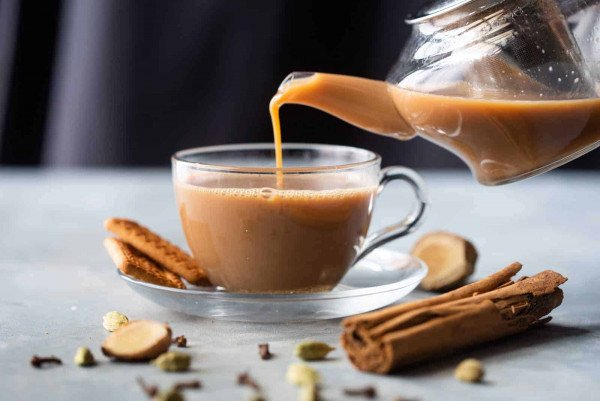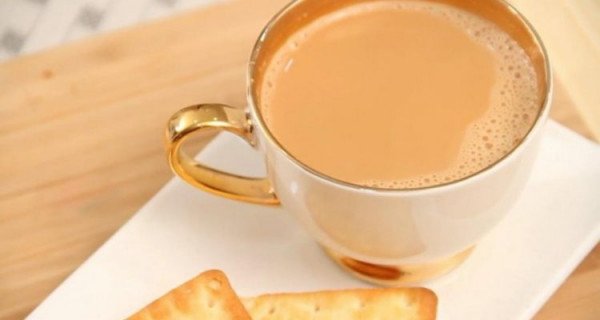

This authentic Pakistani Chai recipe is quick and simple to make on the stovetop. You can make Pakistani and Indian household chai (or tea) with just a few things you probably already have on hand. Tips and tactics for the ideal cup are offered!
Chai is a popular beverage in Pakistan (tea). All Pakistanis have a deep affection for chai. When it comes to tea, there are instances when you want to serve it with cookies, samosas, cake, or naan. Tea snacks come in a variety of flavours and can be consumed with or without tea. Some snacks are simple to prepare, while others take a little longer. Because tea is a part of practically every Pakistani's daily routine, there are a variety of foods to consume with tea in every corner of the country.

Every family is unique, but the everyday cup of chai consumed by the ordinary Pakistani family bears little relation to the chai tea latte available at your local coffee shop.
Chai is really easy to make and forgiving. Follow these steps to make it:
Bring the water to a boil, then add the cardamom pods and tea.Allow for some time for this to simmer.
Bring the milk to a boil, then turn off the burner. Continue to boil, removing from heat as needed, or continue to simmer until the desired strength is reached. Aerate the chai with a ladle if required.
Fill cups with the mixture and sweeten to taste.
Continue to stand overhead once you've added the milk and increased the heat to high! If you take a brief break, the chai will sense your absence and take advantage of the opportunity to boil over. If you don't want to stand over the chai once it starts to boil, reduce the heat to low-medium and let it simmer.
Then carry on with the remaining steps. Simmering makes a stronger cup, but it also cuts down on the quantity.
Using a ladle, scoop up and pour back the tea several times. This aids in the development of the flavour while also making it foamy.
Because some liquid will evaporate during brewing the chai, the amount of liquid you start with will be greater than the amount you finish with.
I've suggested a ratio of 1 1/2 teaspoon tea leaves (or 2 teabags) to 2 small cups (8 oz), but you can alter to taste based on the sort of tea you're using. You'll find your tastes over time, just as you would with any other drink.
Chai is consumed in a completely different way by a regular Pakistani or Indian family than it is by a typical coffee shop chai latte. This is the kind of tea you'd find brewing in a traditional Pakistani kitchen.

| Serving: 2 | Cook Time: 10 mins |
INGREDIENTS:
a quarter cup of water
1 cup whole milk or reduced-fat milk; whole milk yields a slightly richer, creamier chai.
1 1/2 teaspoon loose tea leaves (or 2 black tea bags) (I use Tapal Danedar or Ahmad Tea), or more to taste
a pinch of cardamom powder or 1-2 cardamom pods, slightly broken (optional).
to taste sweetener.
In a pan over high heat, bring the water to a boil. Add the tea leaves or tea bag, as well as the cardamom, once it has reached a boil. Reduce the heat to medium-low and cook for a minute or two, stirring occasionally.
Return the heat to high and add the milk.
The chai will rise to the top of the saucepan as it begins to boil. Before the pan reaches the boiling point, remove it from the heat. Use a ladle to scoop and pour back the tea a few times to fully bring out the flavour.
Alternatively, once it comes to a boil, reduce the heat and leave it to simmer for 3-5 minutes, or until desired strength is reached.
Using a small sieve, strain the tea into your favourite cups and sweeten with sugar or honey.

NOTES :
If you like a thinner, less creamy chai, lower the amount of milk and increase the water.
75 calories, 6 grammes of carbohydrates, 4 grammes of protein, 4 grammes of fat, 2 grammes of saturated fat, 12 milligrammes of cholesterol, 59 milligrammes of sodium, 156 milligrammes of potassium, 1 gramme of fibre, 6 grammes of sugar, 192 milligrammes of vitamin A, 134 milligrammes of calcium, and 1 milligramme of iron.